Program in Audiology and Communication Sciences

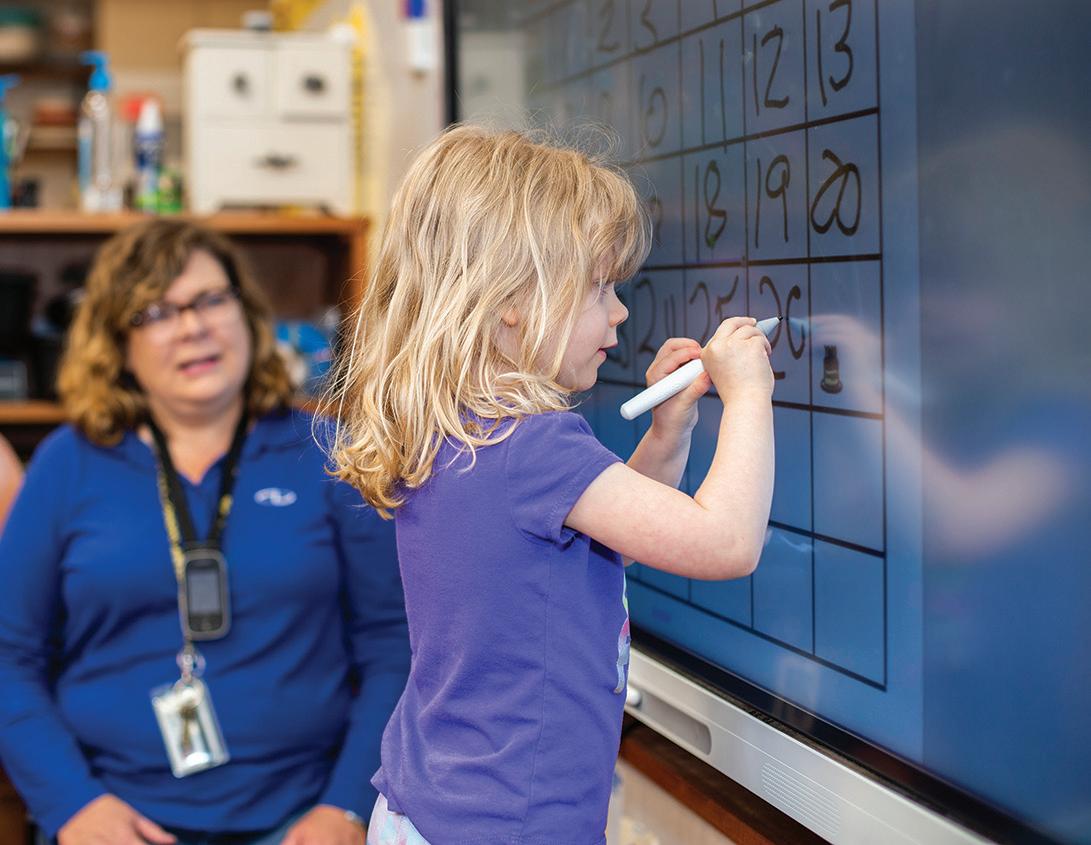
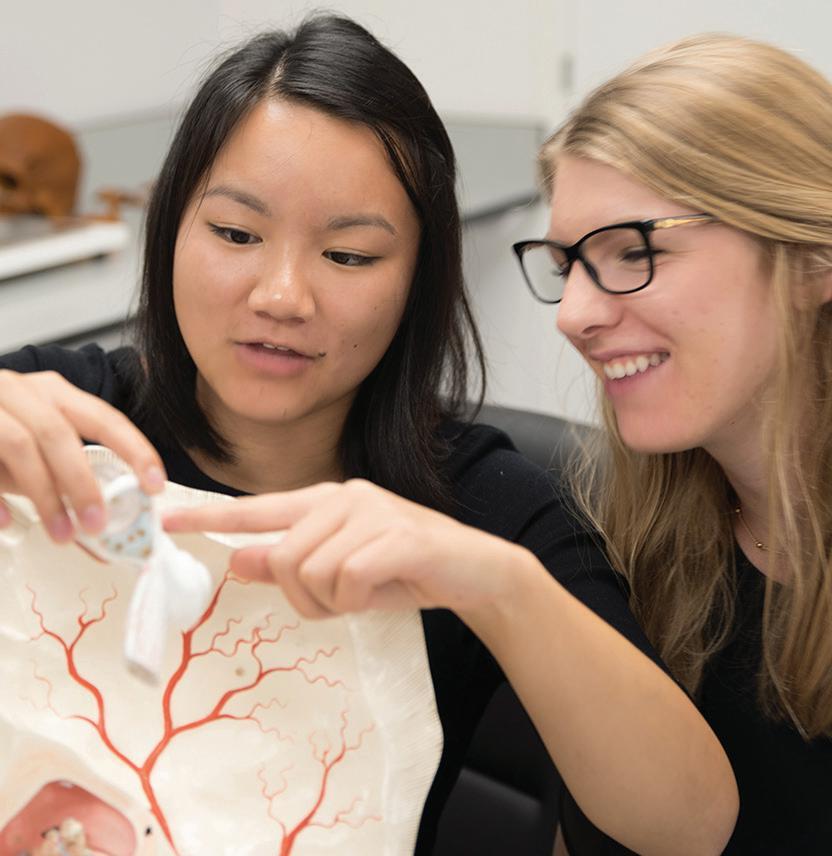
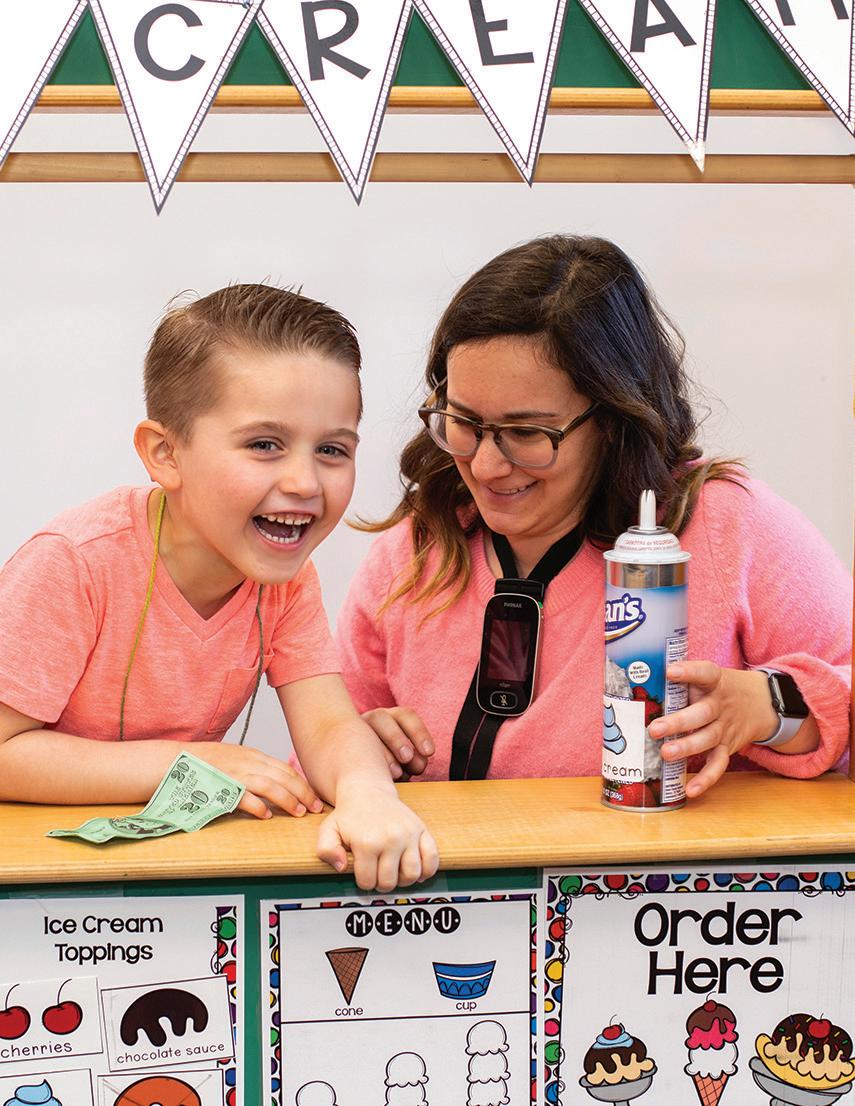 PACS
PACS
You want an environment where discoveries are happening every day.

You are committed to the population you serve. In a perfect world, you do more than treat patients, you improve outcomes.
We hear you.
PACS Program in Audiology and Communication Sciences
Greetings from WashU
Thank you for your interest in Washington University School of Medicine in St. Louis, which offers the following exceptional graduate programs:
• Doctor of Audiology (AuD)
• Master of Science in Deaf Education (MSDE)
• Doctor of Philosophy (PhD)
This viewbook offers an overview of our programs, as well as the unique and supportive community that makes our programs so special. Listed below are a few other highlights.
• WashU has been training professionals in the fields of hearing and deafness since 1914. Its deaf education program was the first in the nation to be affiliated with a university, and it pioneered audiology training when it established its program in 1947 — one of only two in the nation at that time.
• Our programs emphasize immersive, hands-on learning through coursework, practical experiences, and research opportunities.
• Students complete a range of practicum experiences on the Washington University Medical Campus, which includes St. Louis Children’s Hospital, Barnes-Jewish Hospital, and Central Institute for the Deaf (CID), as well as off campus. We are affiliated with over 250 practicum sites around the country.
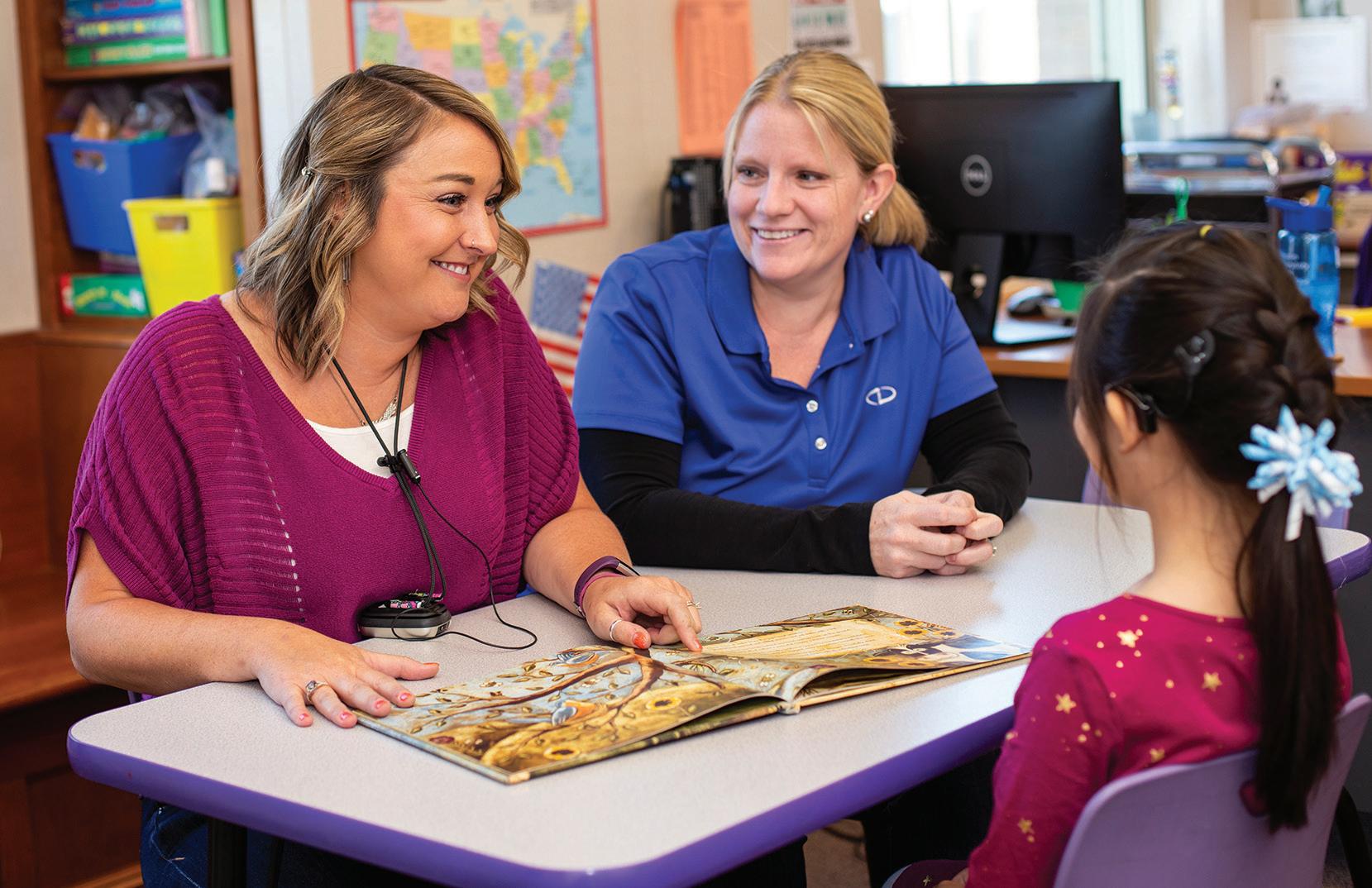
• 100 percent of our students receive scholarship support directly from WashU. Over the past 10 years, students have received over $12 million to help fund their education.
• For the past 10 years, an impressive 100 percent of our alumni have reported job placement within one year of graduation.
We’re thrilled that you’ve taken the first step toward joining our community of clinicians, educators, and researchers! If you’re interested in learning more, I invite you to explore our website at PACS.WUSTL.E DU . We look forward to getting to know you!
Table of Contents
BETH ELLIOTT, MAT Director, Student and Academic Affairs

PACS 3 Doctor of Audiology 4 Master of Science in Deaf Education ........................ 8 Doctor of Philosophy ................................................... 12 Washington University School of Medicine ........ 15 Student Life ..................................................................... 16 Faculty ............................................................................... 18 Application and Admission Information ............. 20 Funding Opportunities 21
1
The Program in Audiology and Communication Sciences (PACS) at Washington University School of Medicine is a renowned academic center with a supportive, inviting culture and access to opportunities that allow our students to put their passion into practice. By preparing passionate and experienced graduates, we strive to improve outcomes for people with hearing disorders.
We invite you to join us in this mission and become a part of our extraordinary community of educators, scholars, and clinicians.
Degrees Offered
Doctor of Audiology (AuD): prepares students as clinical audiologists
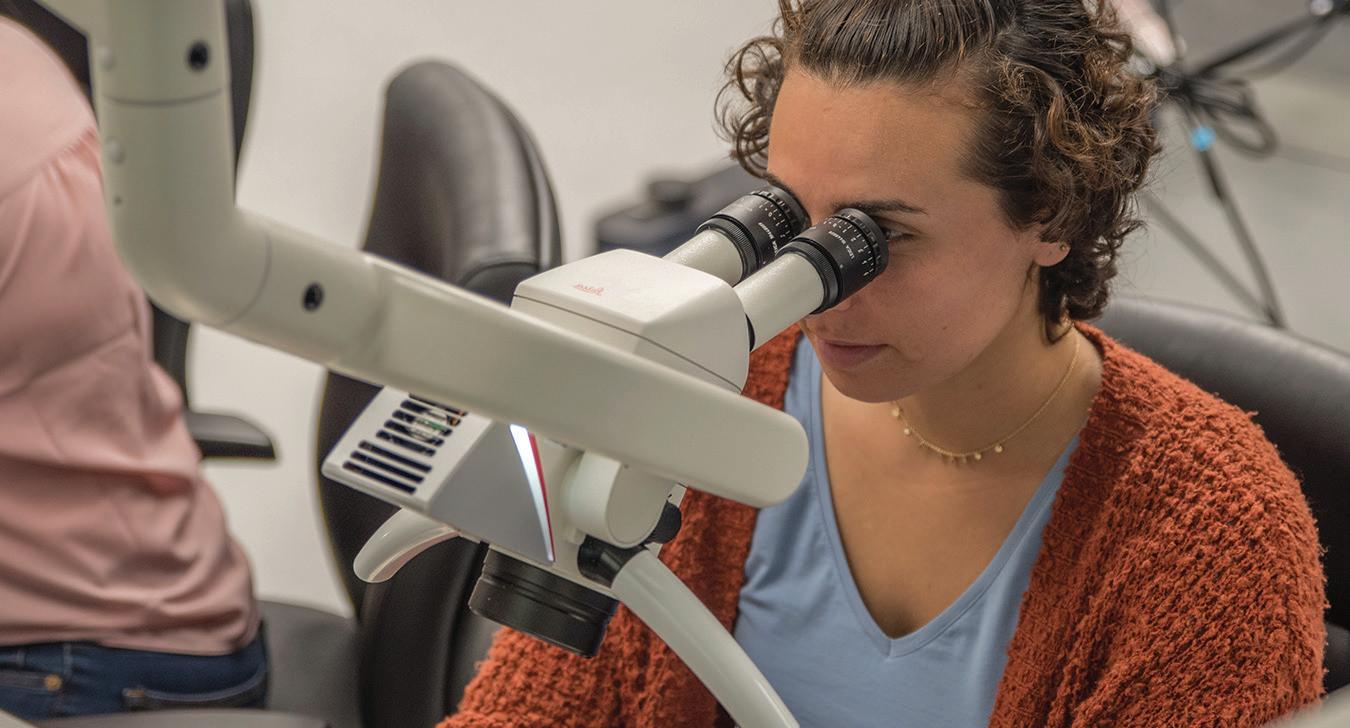
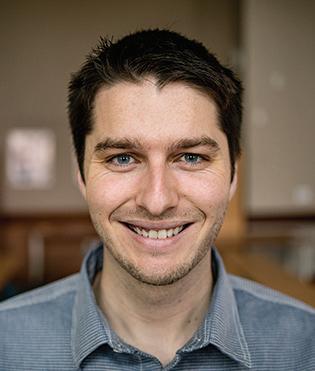
Master of Science in Deaf Education (MSDE): prepares students as teachers of children who are deaf or hard of hearing
Doctor of Philosophy (PhD): prepares students for academic and research careers in speech and hearing sciences
NATIONALLY RECOGNIZED
With graduate programs in audiology, deaf education, and speech and hearing sciences.
25 –30 students admitted to PACS each year
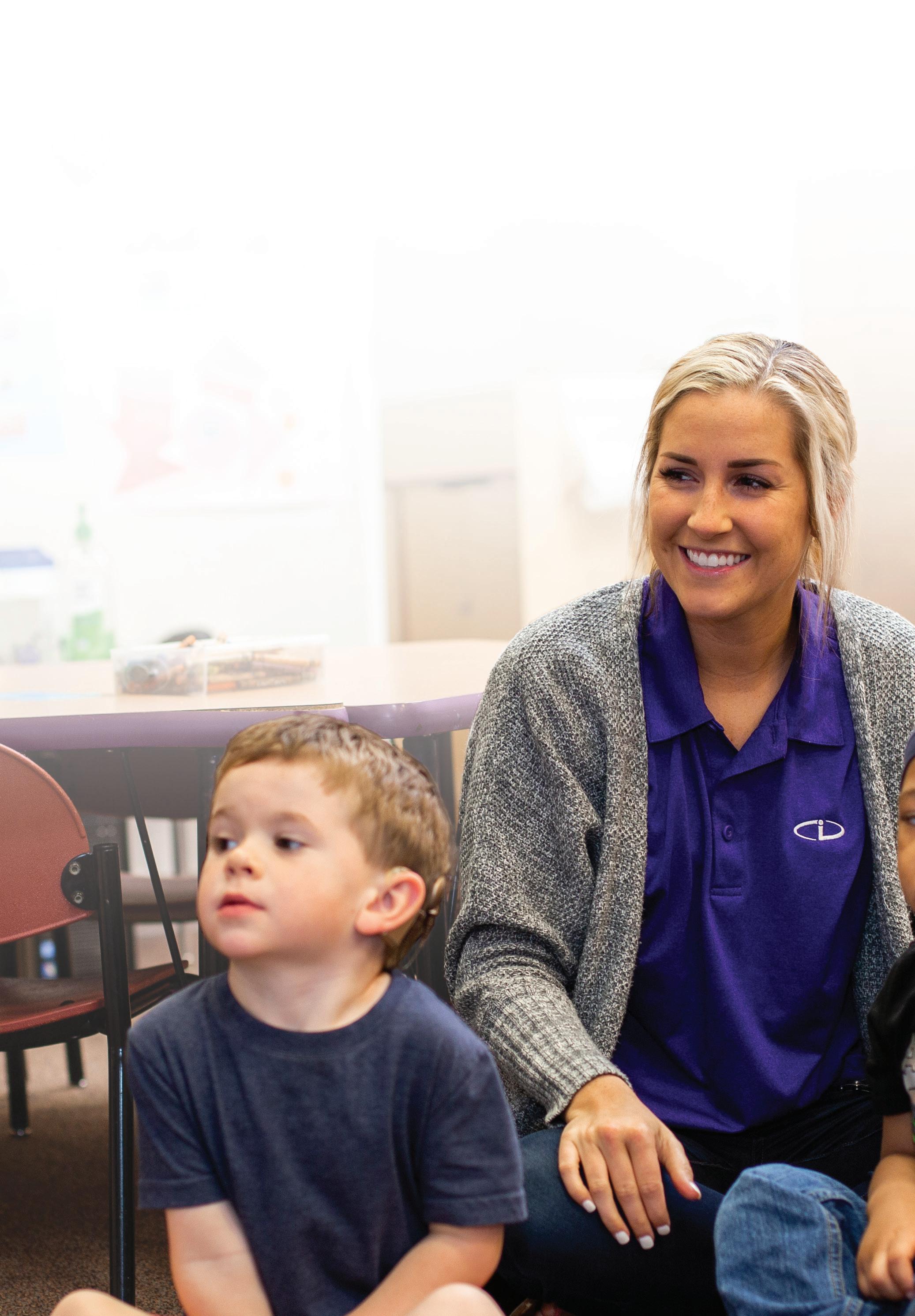
“�The fact that I’m able to be in classrooms and be taught by professors whose names are on every research paper and who are making these ground-breaking discoveries, it really makes me feel like I’m a part of history in the making.”
3 2
WILLIAM HENDRY MSDE almnus
The Doctor of Audiology (AuD) program is a four-year course of study that prepares students as independent clinical audiologists. Established in 1947, the audiology program is among the oldest and most prestigious of its kind.
Today, its curriculum serves as a national model, immersing students in academic coursework, clinical experiences, and research opportunities. Ranked No. 6 in the country by U.S. News & World Report, the program and its faculty are internationally recognized and attract a diverse body of students.
CLINICAL EXPERIENCES
Clinical experiences begin in the first semester and become more prominent with each successive semester, culminating in a full-time clinical externship in the fourth year. Approximately 50 sites in the St. Louis area and 200 more sites around the country are affiliated with the AuD program. These sites provide clinical experiences across the lifespan and scope of practice, including comprehensive audiologic evaluations, hearing aids, cochlear implants, aural rehabilitation, vestibular evaluation and treatment, electrophysiology, and
much more. In addition, our world-class medical school and hospitals provide students with unique opportunities such as attending Grand Rounds, observing cochlear implant surgery seminars and participating in optional research training programs.
RESEARCH
The Doctor of Audiology (AuD) Program No. 6 ranked audiology program in the country
The integration of research into the curriculum is a distinctive feature of the program. All students receive research experience through coursework and the completion of the Capstone Project in the third year. Interested students also are encouraged to pursue their
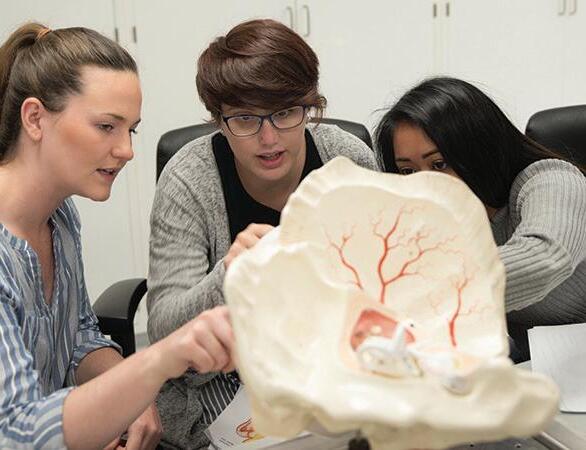
individual research interests through a variety of elective, interdisciplinary research opportunities, including an elective summer research experience.
SPECIALTY TRACKS
The AuD program provides all students with a comprehensive understanding and well-rounded experience across the scope of practice and lifespan. For students with an interest in augmenting their training, two specialty tracks are also available. These specializations provide students with additional knowledge and experience in pediatrics or research
The Pediatric Audiology Specialization prepares AuD students to work with infants and children who are deaf or hard of hearing and their families. In the second year of study, students complete interdisciplinary courses and experiences related to pediatrics, as well as a pediatricfocused practicum placement.
The AuD program’s location in St. Louis offers its students unique and unparalleled opportunities in pediatric audiology clinics, cochlear implant programs, children’s hospitals, and public and private school programs. The first of its kind in the country, our Pediatric Audiology Specialization has served as a model for other AuD programs.
The Research Specialization offers AuD students the opportunity to gain additional knowledge and experience in research. A summer research experience is completed following either the first or second year of study, followed by advanced coursework in statistics and research methods, an expanded Capstone Project, and participation in Brown Bag seminars. This specialization is also encouraged for AuD students interested in pursuing a PhD degree.
ACCREDITATION AND CERTIFICATION
The Doctor of Audiology (AuD) education program in audiology (residential) at Washington University in St. Louis is accredited by the Council on Academic Accreditation in Audiology and Speech-Language Pathology of the American Speech-Language-Hearing Association, 2200 Research Blvd. #310, Rockville, MD 20850, (800) 498-2071 or (301) 296-5700.
The Washington University School of Medicine’s AuD program is nationally accredited by the Council on Academic Accreditation (CAA) of the American Speech-LanguageHearing Association (ASHA). It is recognized by the U.S. Department of Education as an accrediting agency for clinical audiology training programs leading to the AuD degree. Most state boards of licensure require that applicants graduate from a U.S. school accredited by the CAA as a condition for licensure. In addition, some state boards of licensure require that applicants hold the Certificate of Clinical Competence (CCC) in Audiology to obtain certification (for which Washington University graduates are eligible) and/or to take and pass the PRAXIS-Audiology examination. For a state-by-state listing of requirements, please visit ASHA.ORG/ADVOCACY/STATE
The Program in Audiology and Communication Sciences has determined that, as a result of CAA accreditation, its AuD program curriculum meets the educational requirements to sit for the PRAXISAudiology examination, to pursue the CCC-A, and to pursue licensure in all states and territories of the United States and Washington, DC.
by U.S. News & World Report
5 4
Curriculum
During the first three years, coursework is integrated with clinical training and research experiences, with students completing a Capstone Project in the third year. The fourth year is fully dedicated to clinical training. The curriculum emphasizes hands-on experiences and covers the scope of practice for the profession. See PACS.WUSTL.EDU for current curriculum details.
YEAR ONE
Fall Semester
Anatomy and Physiology of Speech and Hearing
Introduction to Electroacoustics
Typical Language Development*
Staffing/Clinical Skills
Observation and Practicum in Audiology
Clinical Audiology I
Hearing Devices I
Spring Semester
Staffing/Clinical Skills
Observation and Practicum in Audiology

Auditory Neuroscience
Auditory Perception
Research Seminar
Clinical Audiology II
Hearing Disorders
Postsession
Counseling for Audiology
Summer Semester
Practicum in Audiology
YEAR TWO

Fall Semester
Sign Language I*
Staffing/Clinical Skills
Practicum in Audiology
Pediatric Audiology
Electrophysiologic Techniques I
Hearing Devices II
Intersession
Practicum in Audiology
Spring Semester
Survey of Speech and Language Disorders*
Staffing/Clinical Skills
Vestibular Assessment
Hearing Devices III
Statistics and Research Methods
Postsession
Electrophysiology II
Pharmacology
Summer Semester
Practicum in Audiology
YEAR THREE
Fall Semester
Staffing/Clinical Skills
Pre-Clinical Externship
Rehabilitative Audiology
Business Practices
Genetics in Hearing Loss
Capstone Project
Spring Semester
Staffing /Clinical Skills
Practicum in Audiology
Hearing Conservation
Capstone Project
Summer Semester
Clinical Externship
YEAR FOUR
Fall Semester
Clinical Externship
Spring Semester
Clinical Externship
Additional Elective Courses:
Geriatric Audiology
Sign Language II
Sign Language III
“ The PACS program says they love and care about their students, and they really mean it and I see that first-hand every day.”
LAUREN FREENY AuD student
7 6
*These courses may be waived if an equivalent course has been completed.
The Master of Science in Deaf Education (MSDE) Program
The Master of Science in Deaf Education (MSDE) program prepares students as teachers of children who are deaf or hard of hearing (birth to grade 12). The early identification of hearing loss and advanced hearing technologies have increased the national need for teachers with experience in listening and spoken language, creating opportunities for graduates across the country. With origins dating back to 1914, the program is recognized internationally as one of the most prestigious of its kind. The program’s intensive curriculum, emphasis on immersion in practice teaching, and experienced faculty attract students nationally from a wide variety of backgrounds.
Two degree paths are available, a two-year curriculum leading to the MSDE degree and teacher certification and a one-year curriculum without certification.
WHO SHOULD APPLY?
Our MSDE students are collaborative, dedicated learners with a passion for helping others. We encourage students
from diverse backgrounds and all undergraduate majors to apply — no prerequisite courses are required for the MSDE program. All requirements
Deaf Education: A listening and spoken language approach
95% of children who are deaf or hard of hearing have parents who can hear and want their child to learn to listen and talk. Teachers who specialize in this educational philosophy help children develop their spoken and written language skills through current teaching strategies and auditory technologies, such as cochlear implants and digital hearing aids.
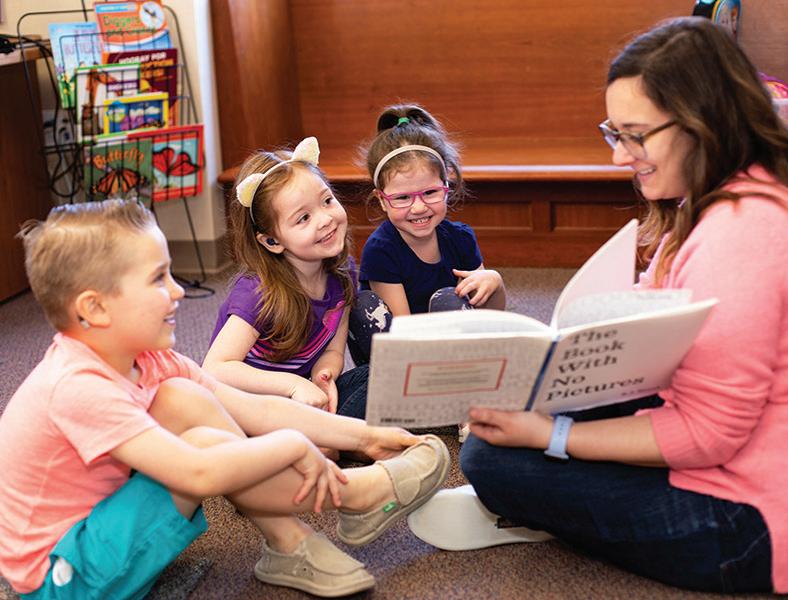
for the master’s degree, as well as teacher certification and licensure, can be completed during the two-year program.
STUDENT TEACHING EXPERIENCES
Our students build their knowledge and skills through classroom instruction and immersive, hands-on student-teaching experiences. They learn about and engage in the teaching process, from the first diagnosis and early intervention through family-centered counseling and educational options for the child. Teaching experiences are available at a number of local and national sites serving children ages birth–grade 12. These sites include both public and private schools, including the oncampus Central Institute for the Deaf.
In addition, our nationally recognized medical school and hospitals provide unique opportunities, such as observing cochlear implant surgery seminars and touring a hospital neonatal intensive care unit.
RESEARCH INTEGRATION
The integration of current research into the curriculum is a unique feature of the program. Through coursework in the fields of speech and hearing, education, psychology, and deafness, students learn how to be consumers of research, and to apply the knowledge gained to their own teaching.
ACCREDITATION AND CERTIFICATION
The Washington University School of Medicine’s MSDE program is accredited by the Missouri Department of Elementary and Secondary Education (DESE) and the Council on Education of the Deaf (CED). PACS is also a Partner Member of OPTION Schools, which are listening and spoken language specialty programs for children who are deaf or hard of hearing.
The MSDE program is recognized by DESE as an approved teacher training program, leading to initial teacher certification in the area of Deaf/Hard of Hearing (Birth–Grade 12). DESE also requires applicants take and pass the Missouri Content Assessment (MCA) in Deaf & Hard of Hearing as a condition for licensure in this area. Select endorsements may also be added upon taking and passing other MCAs. The Program in Audiology and Communication Sciences has determined that, as a result of DESE accreditation, its MSDE program curriculum meets the educational requirements to sit for the MoCA in Deaf & Hard of Hearing and to pursue initial teacher certification in the area of Deaf/Hard of Hearing (Birth–Grade 12) in the State of Missouri. As of November 1, 2020, no determination has been made that its curriculum meets the educational requirements for certification in any other state.
Over 400 hours of in-classroom practicum
experience
9 8
Curriculum
The two-year curriculum is rooted in the development of speech, language, and academics. With that as a foundation, students study the factors necessary for high-quality education for children who are deaf or hard of hearing. A one-year (two semester) program is available for qualified students with a degree and teacher certification in deaf education. Coursework and experiences are tailored to meet the individual interests and background of each student who enrolls.
YEAR ONE
Fall Semester
Anatomy and Physiology of Speech and Hearing
Behavior Management
Typical Language Development*
Early Literacy Development of Children
Who are Deaf or Hard of Hearing
Language Instruction for Children
Who are Deaf or Hard of Hearing
Clinical Audiology I
Spring Semester
Amplification Systems and Aural Rehabilitation for Children
Foundations of Literacy Theory and Instruction
Literacy Lab: A Focus on Typical and Atypical Learners
Mathematics and Content-Area Instruction for Children Who are Deaf or Hard of Hearing I
Speech for Children Who are Deaf or Hard of Hearing
Fundamentals of Early Intervention and Child Development
YEAR TWO
Fall Semester
Evaluation Techniques for Children
Who are Deaf or Hard of Hearing
Sign Language I*
Practicum in Deaf Education
Mathematics and Content-Area Instruction for Children Who are Deaf or Hard of Hearing II
Early Intervention: Serving Children Who are Deaf or Hard of Hearing Birth to Age 5
Pre-Service Teacher Preparation
Spring Semester
Practicum in Deaf Education
Counseling Parents of Children
Who are Deaf or Hard of Hearing
Psychosocial and Educational Foundations of Deafness
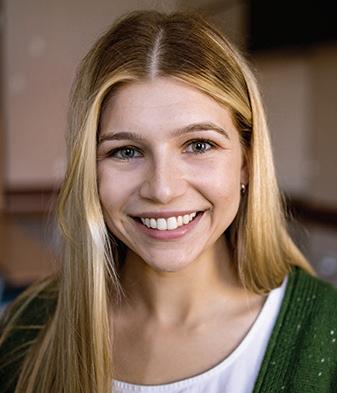
Independent Study
Additional Elective Course:
Sign Language II
Sign Language III
Additional Courses Required for Teacher Certification: Child and Adolescent Psychology*

Education and Psychology of the Exceptional Child*
*These courses may be waived if an equivalent course has been completed.
“�Deaf education is a mix of audiology, speechlanguage pathology, and education, and when I discovered the MSDE program at WashU, I knew that it would be the perfect fit for my career goals. My decision to attend WashU was solidified after talking with the faculty. I was drawn to how genuinely kind the PACS staff and faculty were and continue to be.”
11 10
LIBERTY MOORE MSDE alumna
The Doctor of Philosophy (PhD) Program
The Doctor of Philosophy (PhD) program prepares students for academic and research careers in speech and hearing sciences. Established in 1947, the program operates in collaboration with the Department of Otolaryngology, with its investigations covering the full spectrum of research endeavors, including basic science, applied and clinical science, and clinical outcomes research. The Department is among the largest and most heavily-funded otolaryngology research groups in the country, consistently ranking among the top nationally in NIH funding.
Affiliated research
PACS is affiliated with the Department of Otolaryngology, which operates one of the nation’s largest hearing and deafness research programs. Topics include:
• Adult aural rehabilitation
• Biology of hearing and deafness
• Childhood deafness
• Cochlear implants
• Deaf education
• Dizziness and balance
• Hearing aids
• Tinnitus
CURRICULUM
The curriculum combines interdisciplinary academic coursework, teaching experiences, and research training, culminating in a dissertation. Each student’s experience can be tailored to his or her individual interests. The PhD requires 72 hours of graduate credit. Generally, 24 hours of graduate credit may be transferred toward the PhD from another institution; graduates of our AuD and MSDE programs are provided advanced standing and may transfer up to 48 or 36 hours respectively.
TEACHING EXPERIENCES
Teaching experiences prepare students to become effective teachers and communicators of their discipline and their own research. All PhD students receive training in pedagogy and complete mentored teaching experiences under the guidance of a faculty mentor.
RESEARCH
Students immerse themselves in the world-class research environment of Washington University. As they conduct their own original work, they participate in colloquia, Grand Rounds, brown bag seminars, research seminars, journal clubs, and similar opportunities. The program fosters opportunities to publish and participate in professional conferences. In the final year, students present and defend their dissertation.
AUD/PHD PROGRAM
Students interested in both the practice of clinical audiology and in clinical research may pursue the AuD/PhD. This combined program allows students to pursue both their clinical training in audiology and research training in a rigorous, streamlined program. The AuD and PhD are completed sequentially, allowing students to receive the AuD degree, as well as certification and licensure in clinical audiology, before formally commencing the PhD program. This model also offers PhD students additional opportunities for funding. Students receive credit for 48 semester hours of credit from the AuD toward the PhD, leaving only 24 semester hours of credit to complete to meet the minimum requirements. These 24 semester hours will be drawn from specialized coursework, teaching experiences, and research experiences. Interested students will apply to the PhD after enrolling in the AuD program, allowing for development of research interests and connecting with potential faculty mentors.
“�The faculty mentors at PACS are invested and active in my PhD journey and I feel very supported. I can tell that they care about me as a person, and are advising me in ways that accommodate my goals and that center upon what is in my best interest.”
JAMIE CADIEUX, AUD PhD student
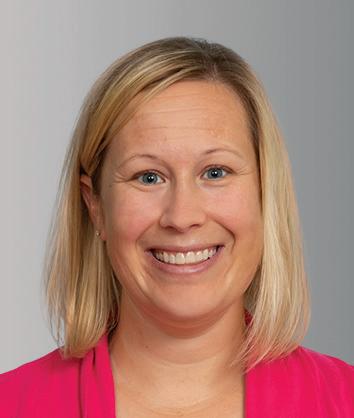
13 12
“�Each student will have their own journey within their cohort. While all students are taking the same classes, PACS fosters a students’ interests and creates opportunities to grow outside the normal curriculum. That may be a volunteer opportunity, assisting with a research project, or completing a practicum rotation in their hometown.”
LAUREN FELTON, AUD Clinical Education Coordinator and Lecturer
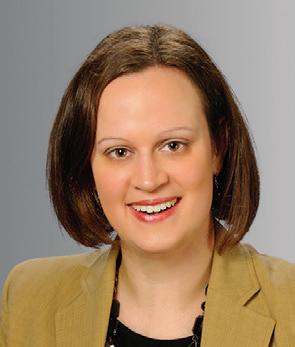
Washington University School of Medicine
The School of Medicine, founded in 1891, has a rich history of success in research, education, and patient care. As one of the top medical schools in the United States, our students bring impressive credentials to their studies. Each year, many Washington University physicians are listed in The Best Doctors in America. 16 faculty members are fellows of the National Academy of Sciences; 28 have been elected to membership in the National Academy of Medicine; and 19 Nobel laureates have been associated with the School of Medicine.
Washington University Medical Campus
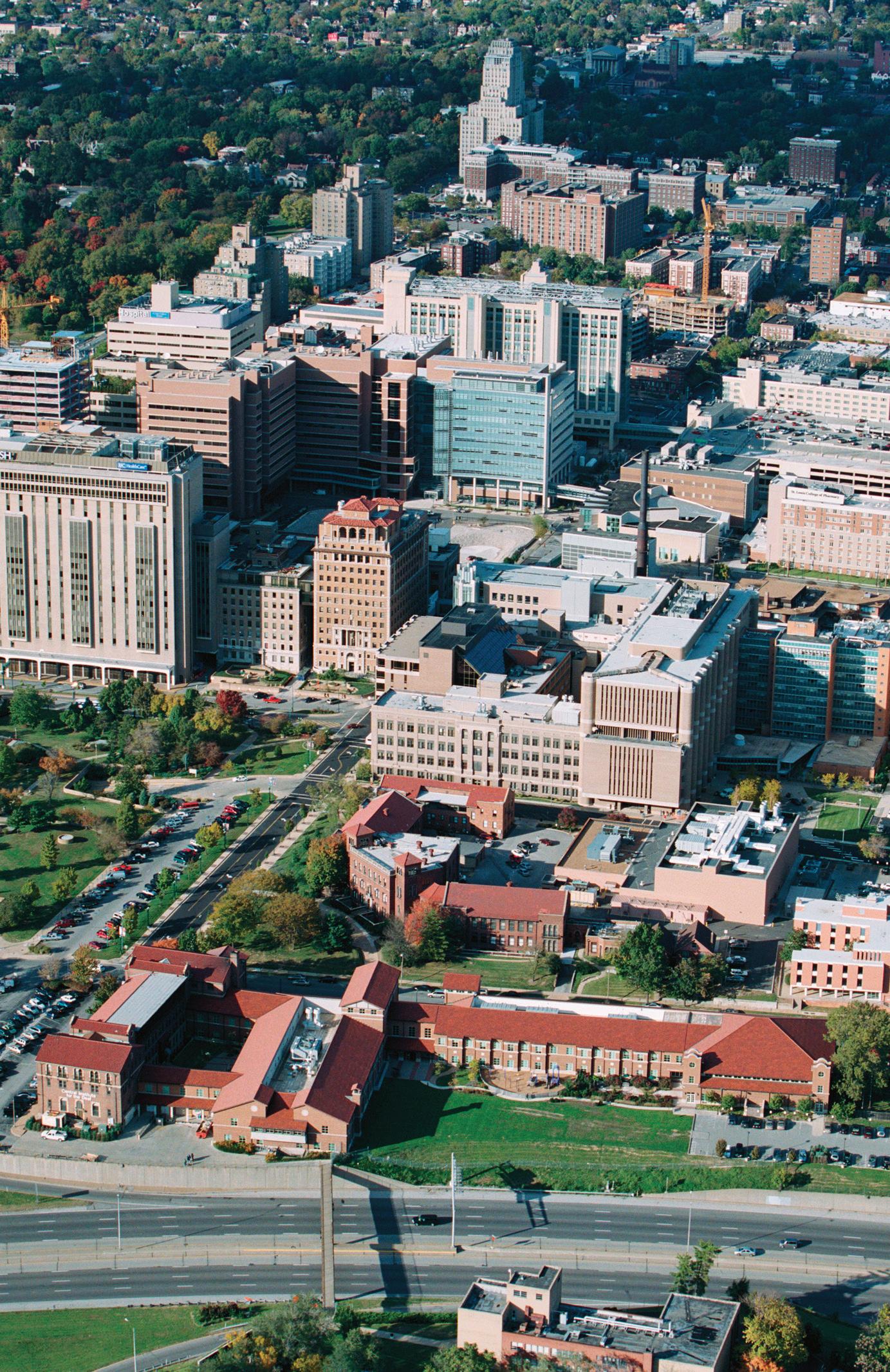
Ranked among the nation’s best, the campus is home to:
• The Alvin J. Siteman Cancer Center
• Barnes-Jewish Hospital
• St. Louis Children’s Hospital
• Washington University School of Medicine
The school operates one of the nation’s largest academic clinical practices in partnership with nationally ranked hospitals. Our research enterprise is among the most extensive in the world. Groundbreaking multidisciplinary work in neuroscience, diabetes, diagnostic imaging, cardiovascular diseases, genetics, immunology, and many other fields are among our strengths.
15 14
Student Life
During your time as a student at Washington University School of Medicine, you will be immersed in a community and city that supports the growth and success of every individual.
We offer extracurriculars such as the Student Academy of Audiology, Health Professional Student Leadership Council, Arts Commission, Medical School Musical, Students’ Association of Speech and Hearing and other activities.

St. Louis also offers a lot to graduate students, with a lower than average cost of living, wonderful neighborhoods and plenty of things to do. It offers all the cultural opportunities of a large city, such as sports, recreational activities and cultural events, with the trademark friendliness of the Midwest.
Located in the Central West End, our campus is also accessible to many restaurants, shops, museums and apartments along with Forest Park and the Metrolink, which has a Central West End stop for added convenience.
To learn more about student life, visit PACS.WUSTL.EDU/ABOUT-PACS/STUDENT-LIFE
HISTORY OF AUDIOLOGY IN ST. LOUIS
St. Louis has a rich history as a hub for audiology and the deaf community, with many leaders in the field studying, researching, and practicing here.
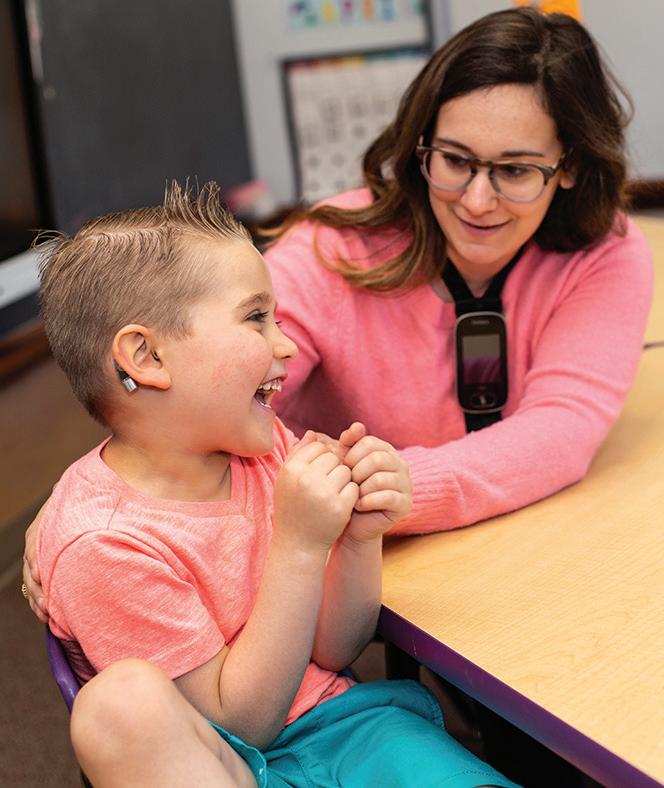
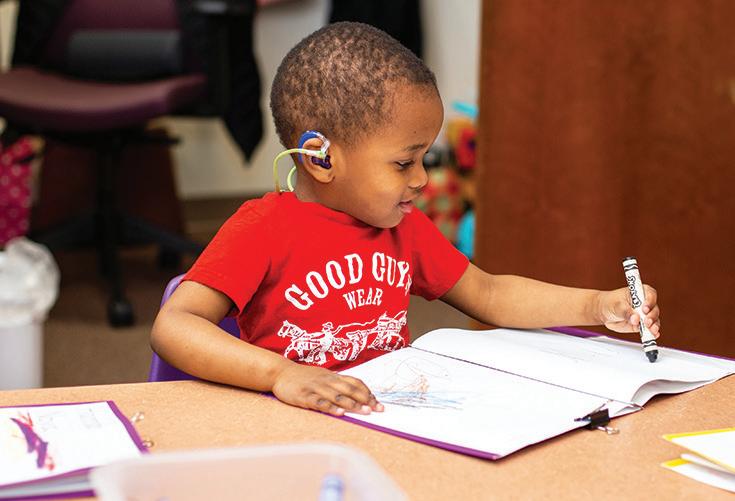
CENTRAL INSTITUTE FOR THE DEAF
Central Institute for the Deaf (CID), located on our campus, has been a national leader in deaf education and research for more than a century. In 1914, CID was founded to serve people who were deaf or hard of hearing. Washington University and CID joined forces in 1931, when CID’s established teacher training program became the first deaf education undergraduate program to affiliate with a university. Graduate programs soon followed.
During World War II, CID’s research on hearing loss in military personnel laid the foundation for the field of audiology. CID also pioneered hearing testing, digital hearing aids, and hearing research, and opened the country’s first hearing aid clinic in 1941. In September 2003, a new affiliation transferred CID’s graduate degree programs, research programs, and adult audiology clinic, along with its building, to Washington University School of Medicine. The CID school continues to operate on the School of Medicine campus.

Today, these programs continue to work together to fulfill a shared mission to serve people who are deaf or hard of hearing.
17 16
Faculty
Clinical Audiology • Hearing Aids •
Cochlear Implants • Aural Rehabiliation
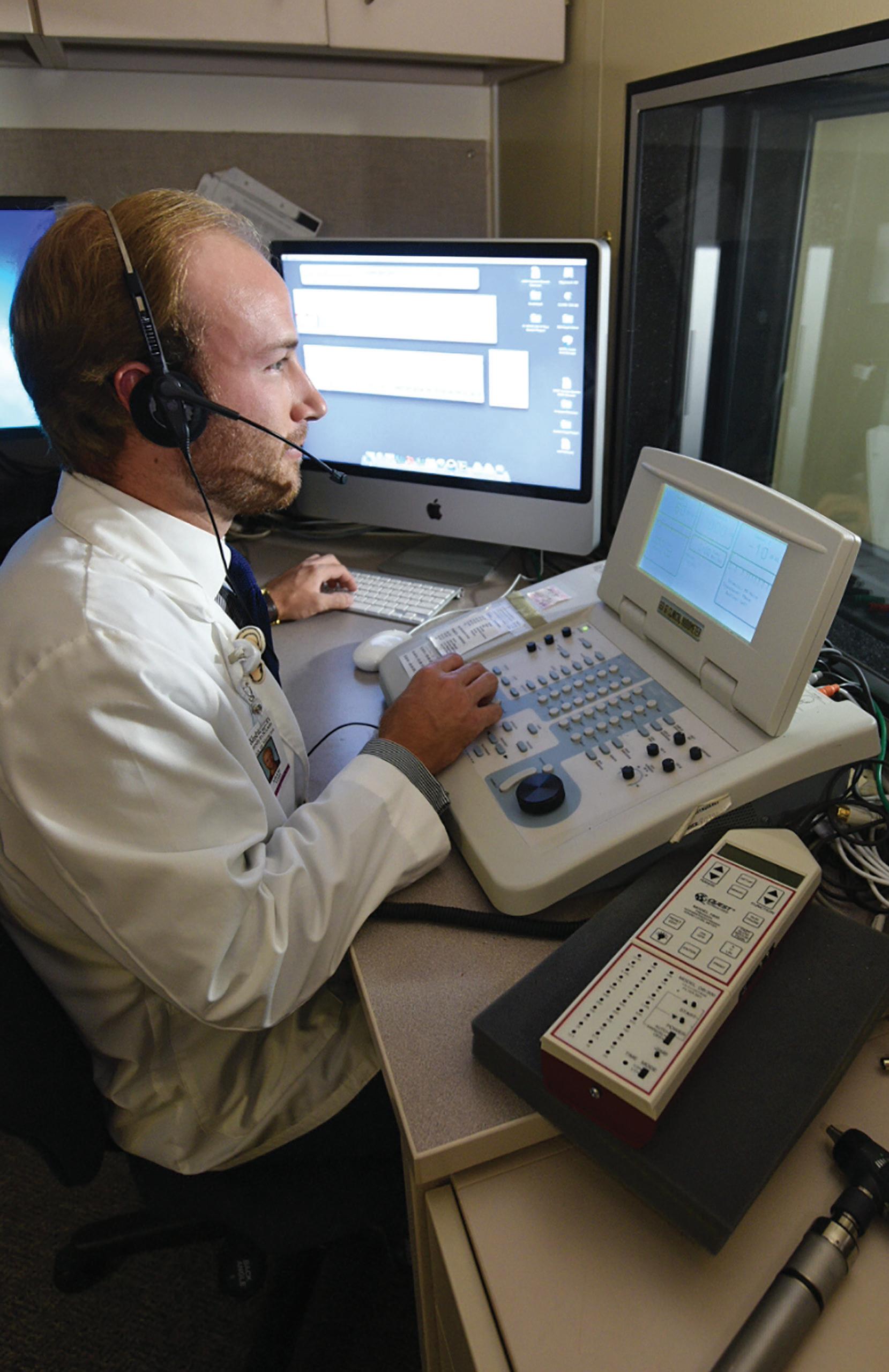
McKenna Bellamy, AuD
Greta M. Bohnenkamp, MS
Alison Brockmeyer, AuD
Craig Buchman, MD
Jamie Cadieux, AuD
Lisa S. Davidson, PhD
Lauren E. Felton, AuD
Dorina Kallogjeri, MD
Kate McClannahan, AuD, PhD
Amanda Ortmann, PhD
Kimberly K. Ott, MS
Lisa G. Potts, PhD
Belinda Sinks, AuD
Brent P. Spehar, PhD
Rosalie Uchanski, PhD
Brittany Wuebbles, AuD
Deaf Education
Lauren Abel, MA
Lynda C. Berkowitz, MSSH
Amy L. Birath, AuD
Betsy Moog Brooks, EdD
Amanda Dunaway, MSDE
Elizabeth A.C. Elliott, MAT
Heather Grantham, PhD
Christine H. Gustus, MSSH, EdD
Erin Hemme, MSDE
Jennifer Manley, Ed.S.
Jean S. Moog, MS
Audrey Nemeth, MSDE
Justine L. Preston, MA
Casey Reimer, PhD
Amy Reusch, MS
Amanda Rudge, PhD
Sarah Saettele, MA
Mary A. Shortal, MA
Karen S. Stein, MAEd
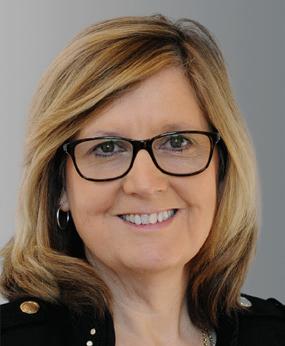
Biology of Hearing and Deafness •
Dizziness and Balance
William W. Clark, PhD (Emeritus)
Brian T. Faddis, PhD
Kevin K. Ohlemiller, PhD
Mark E. Warchol, PhD
“�The environment at WashU offers students a variety of experiences that will enable them to pursue a career that is unique to their interests. Students have the opportunity to interact with world-class educators, clinicians, clinician scientists, and basic scientists who are dedicated to the field of speech and hearing to supplement their training and, in many cases, leads them to exciting opportunities they may not have initially imagined.”
LISA DAVIDSON, PHD Associate Professor of Otolaryngology
19 18
Application and Admission Information
PREREQUISITES
To be considered for admission, applicants must hold a bachelor’s degree or higher from an accredited university. There are no specific prerequisite courses for applicants to the AuD and MSDE programs. Courses listed below are required for professional certification and/or licensure upon graduation. Unless otherwise noted, coursework in each subject must be equivalent to three semester hours or more of academic credit.
Completion of the courses listed below is recommended, but not required , prior to enrollment. Any deficits generally can be completed during graduate studies without an extension of the program.
AuD Program
• Typical language development
• Disordered speech and language development
• Sign language1
PhD Program
• Competitive applicants generally hold a graduate degree in a related field and/or have relevant research experience.
MSDE Program
• Child and adolescent psychology
• Education and psychology of the exceptional child
• Typical language development
• Sign language1
1 Must be equivalent to two semester hours or more of academic credit.
APPLICATION PROCEDURES
The following items are required and must be received by the application deadline.
• Completed application, including personal statement
• Application fee (non-refundable) of $25*
• Transcripts (official or unofficial) from all college/university coursework
• Three letters of recommendation
• We do not require an interview, but strongly encourage meeting with a faculty member, either in person or via Zoom, prior to the application deadline.
Note: GRE scores are not required. If you’ve taken the exam and would like to submit your scores, you may do so and they will be added to your application. However, scores will not be reviewed as part of the admissions process.
*Application waivers are available for all applicants to the MSDE program upon request.
Additional requirements for international students:
• An official evaluation of transcripts from a credentialing agency must be submitted for all international applicants. Please see PACS.WUSTL.EDU/ADMISSIONS/ FAQPAGE/ for more information.
• If English is not your native language, you will need to take one of the following exams within one year of applying and submit official scores.
– TOEFL: Minimum score of 100
– IELTS: Minimum score of 7
APPLICATION DEADLINES
Online applications open September 1 of each year. All application materials must be received by the following dates:
• PhD program — January 15
• AuD program — February 1
• MSDE program — December 1 (early decision), February 1 (priority decision), or June 1 for rolling admissions (fall entry, as available)
2024–25 TUITION AND FEES
Full-time tuition for students entering the AuD and MSDE programs during the academic year is $46,500 per year plus a non-refundable matriculation fee of $200. Part-time tuition is $1500 per semester hour. Tuition rates will not increase above the amount set at the time of enrollment, assuming continuous full-time enrollment. Full-time tuition also includes student health, life, and disability coverage through Washington University School of Medicine. Full-time tuition will be reduced by 50 percent for AuD students during the Clinical Externship in Audiology (fourth year). Additional fees may be required for international students.
FUNDING OPPORTUNITIES
PACS is committed to enrolling talented, motivated students from diverse backgrounds. Historically, we have provided financial assistance to 100 percent of our students through a variety of support mechanisms. Funding opportunities include:
Assistantships
GSA positions are available to enrolled AuD students. Assignments are made on a semester basis at 30-50 hours per semester.
Stipends
PhD students are supported by an annual stipend to defray living expenses.
Federal Work Study
These positions generally work in a clerical, clinical, or research position in PACS, with pay being made on an hourly basis.
Part-time Employment
Part-time, paid positions are available on campus. Students are notified of opportunities as they are announced.
Loans
For more information regarding loans, applicants may contact the Office of Student Financial Planning at (888) 840-3239, MEDFINANCIALAID@WUSTL.EDU or visit FINAID.MED.WUSTL.EDU.
21 20
SCHOLARSHIPS
Scholarships are the primary form of financial support for our students. Offered at the time of admission, scholarships generally provide support to students for all years of study. There is no work requirement in exchange for the scholarship during the student’s enrollment, though a service obligation may be required for some scholarship recipients. Visit PACS.WUSTL.EDU/ ADMISSIONS/FUNDING to see scholarship opportunities.
TUITION GUARANTEE
Tuition rates for AuD and MSDE students are frozen at the time of enrollment and will not increase, assuming continuous full-time enrollment in the degree program. PhD funding is offered at the time of admission.
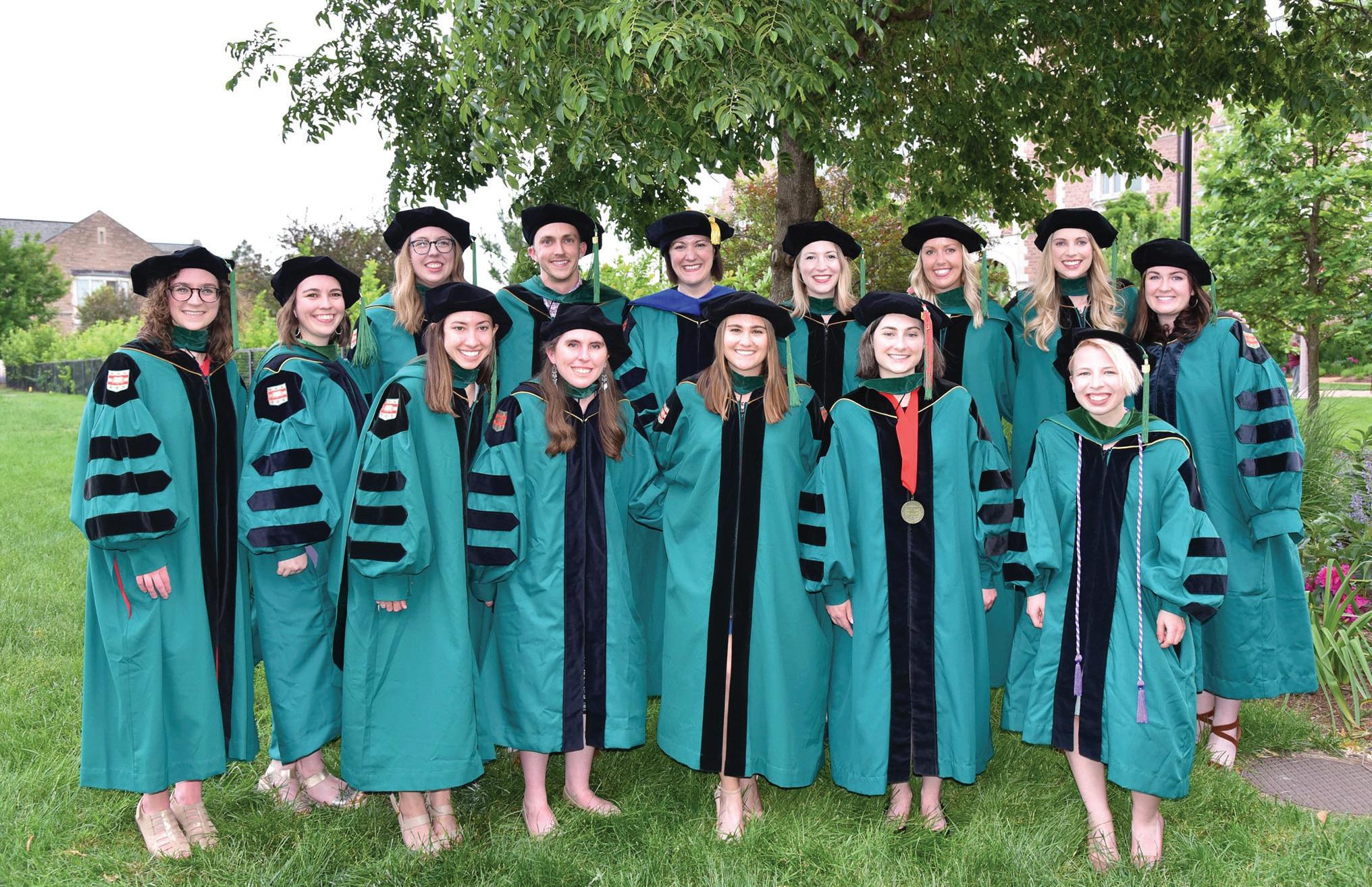
NON-DISCRIMINATION STATEMENT
Washington University encourages and gives full consideration to all applicants for admission, financial aid, and employment. The university does not discriminate in access to, or treatment or employment in, its programs and activities on the basis of race, color, age, religion, sex, sexual orientation, gender identity or expression, national origin, veteran status, disability, or genetic information. Inquiries about compliance should be addressed to the university’s Vice Chancellor for Human Resources, Washington University, Campus Box 1184, One Brookings Drive, St. Louis, MO 63130. The School of Medicine is committed to recruiting, enrolling, and educating a diverse student body.
CRIMINAL BACKGROUND CHECK AND DRUG SCREENING
Incoming students in the School of Medicine must undergo criminal background checks and drug screening before matriculation because of requirements of the Joint Commission on Accreditation of Health Organizations (JCAHO). These confidential procedures are required of all health care workers, students, and volunteers who participate in patient-related health care activities at the hospitals and health care facilities with which Washington University School of Medicine is affiliated. In order to matriculate, a student who has accepted admission must consent to criminal background checks, which must be completed successfully before he or she can matriculate in the School of Medicine. Consent forms will be distributed to applicants who are offered positions in the incoming class. Similarly, at the time of orientation, all incoming pre-matriculant students must submit to screening for the following substances: THC-cannabis, cocaine, opiates, amphetamines, and PCP-phencyclidine. A confirmed positive test will preclude enrollment into the School of Medicine. All costs for U.S. background checks and drug screenings are included in the stated tuition and fees. The student will be responsible for any costs associated with international background checks required for matriculation and/or practicum placements.
PhD program January 15
AuD program February 1
MSDE program December 1 (early decision) February 1 (priority decision) or June 1 rolling admissions (fall entry, as available)
Application Deadlines Online applications open September 1 To see scholarship opportunities: PACS.WUSTL.EDU/ADMISSIONS/FUNDING For more information regarding loans: MEDFINANCIALAID@WUSTL.EDU, visit FINAID.MED.WUSTL.EDU, or contact the Office of Student Financial Planning at (888) 840-3239 23 22
2024–25 PACS Program in Audiology and Communication Sciences Phone: (314) 747-0104 Fax: (314) 747-0105 Email: pacs@wustl.edu PACS.WUSTL.EDU We hear you. Washington University School of Medicine MSC 8042-026-2000 660 S. Euclid Ave. St. Louis, MO 63110



 PACS
PACS






















